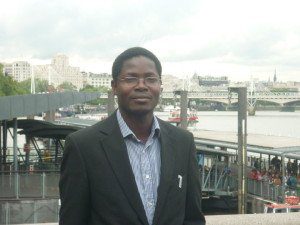National Issues
“You Must Bring the Change” -By Seun Kolade

A few days ago I was party to what has turned out, unwittingly, to be a powerfully revolutionary statement from a bus conductor on the streets of Lagos. The fellow had angrily remonstrated with a passenger asking for “change” after paying his fares. Perhaps the passenger’s face was familiar, and he had made a habit of paying his fares with high denominations, and then asking for change. “Do not expect to be given change all the time”, the conductor said, “you must bring the change.”
Now this conductor was most probably oblivious of the wider implication and deeper resonance of his statement when he made it, but he could not have more aptly summed up the expectation of the average Nigerian citizen today.
For several months leading to the March/April 2015 general elections, we witnessed an unprecedented level of citizens engagement, on social media and beyond, on the political future of the Nigerian state. Emotions ran high and wild, and exchanges became increasingly acrimonious, with many alliances broken, friendships strained, and relationships redefined. Yet, if one looked beyond the surface–for all the sound and fury–the fever pitch engagement of citizens was, in fact, breath-taking in its sheer superficiality. For one, the focus was almost entirely on the presidency. Two, it was almost entirely based on the assumed faith and trust in the ability and willingness of one or the other party to deliver the change or transformation Nigeria desperately needs.
Let me hasten to say that I am not trying to be critical for the sake of it, and I understand the force of practical politics. The saying goes that in the business of revolutionary change, you have to work with what you have to get what you want. There are no perfect scenarios or saintly politicians.
…it is the citizens who must lead and drive the process of bringing change. This does not discountenance the fact that political office holders have a role to play in implementing specific policies, but it is the citizens who must, so to speak, WILL the WHEEL of real progress. This is the truth that we all need to engage with greater attention and focus.
Consider, for example, the recent drama that unfolded on the floors of the National Assembly. Politicians elected on the platform of change turned the hallowed chambers into a theatre of the absurd. While the nation faces existential struggle against terrorism and debilitating poverty, these self-seeking officials are engrossed in a desperate struggle for positions. The visionary ones are yet to be born.
I don’t think any serious minded person will have a problem with the oft-made point that national politics, certainly in such a peculiar nation like Nigeria, does not fit into the prescriptions of textbook political philosophy. So, we need to be clear about one thing: this is not about arid idealism or grandiose theories. This is about the fundamentals of real change. As it can be deduced from what the bus conductor said–even if not directly implied–it is the citizens who must lead and drive the process of bringing change. This does not discountenance the fact that political office holders have a role to play in implementing specific policies, but it is the citizens who must, so to speak, WILL the WHEEL of real progress. This is the truth that we all need to engage with greater attention and focus.
Political parties have their place and role in a liberal democracy, and citizens should be encouraged to participate in partisan politics. However, this can never substitute for the critical contribution of citizens outside the structures and strictures of party politics. Even at its best, party politics is inherently limited, in terms of its space for generating ideas, and its scope for driving them. There will always be vested interests and big financiers who exercise disproportionate controls.
In Nigeria, the party machineries are often dominated by unscrupulous godfathers and big moneybags with questionable records. They play the piper, and call the tune. That does not mean informed citizens should not engage in partisan politics. In fact, the stronger argument is that more citizens should engage, if only to force reforms and raise the standard of party politics. Even so, there is the critical need for citizens to locate and develop non-party platforms to drive the idea of positive change. Citizens cannot afford to leave themselves at the mercy of politicians and the political. That is a recipe for disaster.
We won’t get there on tip toe, and certainly not without effective organisation and adequate planning.
The change is not, fundamentally in Buhari, APC, or what have you. You must bring the change.
Seun Kolade is a Postdoctoral Research Fellow at the Centre for African Entrepreneurship and Leadership, University of Wolverhampton, UK.




















